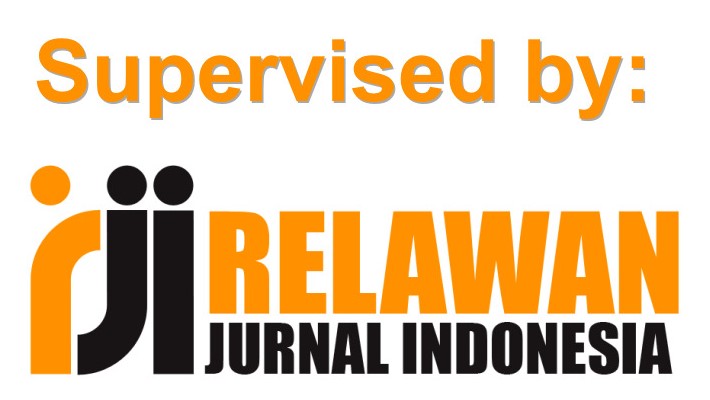Penerapan Scientist-Practitioner Model Asesmen Kecemasan Akademik Peserta Didik Sekolah Menengah Pertama
DOI:
https://doi.org/10.31100/matappa.v7i1.1405Keywords:
Asesmen, Bimbingan dan konseling Belajar, Kecemasan Akademik, Multimodal State and Trait Evaluation Anxiety (MSTEA-12) Scale, Scientist-Practitioner modelAbstract
Pengabdian kepada masyarakat bertujuan untuk memfasilitasi peserta didik memahami gambaran kecemasan akademiknya. Pengabdian masyarakat menggunakan scientist-practitioner model dengan melibatkan 32 orang peserta didik dan 1 guru bimbingan dan konseling/konselor dari satu sekolah menengah pertama di Jakarta. Data dikumpulkan menggunakan Multimodal State and Trait Evaluation Anxiety (MSTEA-12) Scale dan dianalisis menggunakan rata-rata dan simpangan baku. Secara operasional, analisis data menggunakan Rash Model 3.75.0 dan SPSS v. 25.0. Hasil pengabdian kepada masyarakat menunjukkan bahwa pelatihan dan pendampingan asesmen kecemasan akademik dapat memfasilitasi peserta didik memahami profil kecemasan akademik dirinya. Kecemasan akademik peserta didik SMP cenderung berada pada kategori sedang, baik secara keseluruhan, dimensi kekhawatiran kognitif dan emosional, maupun faktor tes/tugas, menulis, berbicara di depan umum, dan kerja kelompok. Hasil ini dapat dijadikan baseline pengembangan program bimbingan dan konseling belajar untuk mengembangkan strategi koping dan menurunkan kecemasan akademik peserta didik SMP.
References
Bulbul, K., & Odaci, H. (2023). Analysis of studies about academic anxiety: A thematic review. Psikiyatride Güncel Yakla??mlar-Current Approaches in Psychiatry 2023; 15(2), 370-384. doi: 10.18863/pgy.1124868.
Cassady, J.C., Pierson, E.E., & Starling, J.M. (2019). Predicting student depression with measures of general and academic anxiety. Frontiers in Education, 4(1), 1-9. https://doi.org/10.3389/feduc.2019.00011.
Dobos, B., Piko, B. F., & Mellor, D. (2021). What makes university students perfectionists? The role of childhood trauma, emotional dysregulation, academic anxiety, and social support. Scandinavian journal of psychology, 62(3), 443–447. https://doi.org/10.1111/sjop.12718
Firmantyo, T., & Alsa, A. (2016). Integritas kademik dan kecemasan akademik dalam menghadapi ujian nasional pada siswa. Psikohumaniora: Jurnal Penelitian Psikologi, 1(1), 1-11.
Gadzella, B. M., & Masten, W. G. (2005). An analysis of the categories in the student-life stress inventory. American Journal of Psychological Research, 1(1), 1-10.
Hays, D. G. (2013). Assessment in counseling: A guide to the use of psychological assessment procedures. Alexandria, VA: John Wiley & Sons.
Healy, P. (2017). Rethinking the scientist-practitioner model: On the necessary complementarity of the natural and human science dimensions. European Journal of Psychotherapy & Counseling, 19(3), 231-251.
Herdi, H., & Ash-Shiddiqy, A.R. (2021). Pelatihan dan pendampingan asesmen adaptabilitas karir peserta didik berbasis computer assisted testing sebagai dasar pengembangan program bimbingan dan konseling karir di Sekolah Menengah Pertama. MATAPPA: Jurnal Pengabdian kepada Masyarakat, 4(3), 371-378.
Jakovljevic, M., Bjedov, S., Jaksic, N., & Jakovljevic, I. (2020). Covid-19 pandemia and public and global mental health from the perspective of global health security. Psychiatria Danubia, 32(1), 6-14.
Jiménez-Mijangos, L. P., Rodríguez-Arce, J., Martínez-Méndez, R., & Reyes-Lagos, J. J. (2023). Advances and challenges in the detection of academic stress and anxiety in the classroom: A literature review and recommendations. Education and information technologies, 28(4), 3637–3666. https://doi.org/10.1007/s10639-022-11324-w
Jex, S. M., & Britt, T. W. (2014). Organizational psychology: A Scientist-Practitioner Approach (3rd ed.). Hoboken, New Jersey: John Wiley & Sons.
Katarina, S. (2018) Relationship between academic anxiety and aggression among adolescents. National Journal of Multidisciplinary Research and Development, 3(1), 262-263.
Kipoulas, E., Berzengi, A., & Kyriakopoulos, M. (2020). Prevalence and clinical correlates of self-harm and suicidality during admission of children in a mental health inpatient unit. European Psychiatry: The Journal of the Association of European Psychiatrists, 64(1), 1-15. https://doi.org/10.1192/j.eurpsy.2020.108.
Morganstein, J. C., & Ursano, R. J. (2020). Ecological disasters and mental health: Causes, consequences, and interventions. Frontiers in psychiatry, 11, 1-15. https://doi.org/10.3389/fpsyt.2020.00001.
O’Connor, F. (2007). Frequently asked questions about academic anxiety. New York: The Rosen Publishing Group.
Sari, A.R., & Winingsih, E. (2021). Kecemasan akademik siswa dalam pembelajaran daring di era pandemi covid-19 di SMAN 2 Kota Mojokerto, Jurnal BK Unessa, 12(3), 467-488.
Shawler, L. A., Blair, B. J., Harper, J. M., & Dorsey, M. F. (2018). A survey of the current state of the scientist-practitioner model in applied behavior analysis. Education and Treatment of Children, 41(3), 277-298.
Sharma, R. (2017) Relationship between academic anxiety and mental health among adolescents. International Journal of Research in Humanities, Arts and Literature, 5, 113-120.
Shekhar S. K. (2023). Investigating the mediating effect of anxiety and fear of a third wave of COVID-19 among students in South India. Annales Medico-Psychologiques, 181(4), 330–335. https://doi.org/10.1016/j.amp.2022.08.002
Soares, S., Boyes, M. E., Parrila, R., & Badcock, N. A. (2023). Does reading anxiety impact on academic achievement in higher education students? Dyslexia (Chichester, England), 29(3), 179–198. https://doi.org/10.1002/dys.1738
Sotardi V. A. (2018). Trait and state anxiety across academic evaluative contexts: development and validation of the MTEA-12 and MSEA-12 scales. Anxiety, stress, and coping, 31(3), 348–363. https://doi.org/10.1080/10615806.2017.1421948
Putwain, D. W., Jansen In de Wal, J., & van Alphen, T. (2023). Academic buoyancy: Overcoming test anxiety and setbacks. Journal of Intelligence, 11(3), 42. https://doi.org/10.3390/jintelligence11030042
Stoltenberg, C. D., Pace, T. M., Kashubeck-West, S., Biever, J. L., Paterson, T., & Welch, I. D. (2000). Training model in counseling psychology: Scientist-Practitioner versus Practitioner-Scholar. The Counseling Psychologist, 28(5), 622-640. https://doi.org/10.1177/0011000000285002
Suwartika, I., Nurdin, A., & Ruhmadi, E. (2014). Analisis faktor yang berhubungan dengan tingkat kecemasan akademik mahasiswa reguler program studi d iii keperawatan cirebon poltekkes kemenkes tasikmalaya. Jurnal Keperawatan Soedirman, 9(3), 173-189.
Tang, Y., & He, W. (2023). Meta-analysis of the relationship between university students' anxiety and academic performance during the coronavirus disease 2019 pandemic. Frontiers in psychology, 14, 1018558. https://doi.org/10.3389/fpsyg.2023.1018558
Xiang, Y. T., Zhao, Y. J., Liu, Z. H., Li, X. H., Zhao, N., Cheung, T., & Ng, C. H. (2020). The COVID-19 outbreak and psychiatric hospitals in China: managing challenges through mental health service reform. International journal of biological sciences, 16(10), 1741–1744. https://doi.org/10.7150/ijbs.45072
Yang, Y., & Yang, P. (2022). Effect of college students' academic stress on anxiety under the background of the normalization of COVID-19 pandemic: The mediating and moderating effects of psychological capital. Frontiers in psychology, 13, 880179. https://doi.org/10.3389/fpsyg.2022.880179.
Yang Z, Asbury K, Griffiths MD (2019) An exploration of problematic smartphone use among Chinese university students: Associations with academic anxiety, academic procrastination, self-regulation and subjective wellbeing. International Journal of Mental Health Addiction, 17(1), 596-614. doi:10.1007/s11469-018-9961-1
Zeidner, M., & Mathews, G. (2005). Evaluation anxiety: Handbook of competence and motivation. New York: Guilford Press.
Downloads
Published
Issue
Section
Citation Check
License
Copyright (c) 2024 Herdi Herdi, Michiko Mamesah

This work is licensed under a Creative Commons Attribution 4.0 International License.
Jurnal ini memberikan akses terbuka langsung dengan prinsip bahwa membuat penelitian tersedia secara bebas untuk publik mendukung pertukaran pengetahuan global yang lebih besar.
Semua artikel yang diterbitkan dapat di Akses secara Terbuka atau Gratis untuk semua orang baik untuk dibaca maupun diunduh di bawah lisensi CC-BY.
Ppenulis mempertahankan kepemilikan hak cipta untuk artikel mereka, tetapi penulis memberikan izin kepada orang lain untuk menggunakan konten publikasi di Matappa secara keseluruhan atau sebagian asalkan karya aslinya dikutip dengan benar.
Hak cipta mencakup hak eksklusif untuk mereproduksi dan menyampaikan artikel dalam semua bentuk dan media, termasuk cetak ulang, foto, mikrofilm dan reproduksi serupa lainnya, serta terjemahan. Reproduksi bagian manapun dari jurnal ini, penyimpanannya dalam basis data dan transmisi dengan bentuk atau media apa pun, seperti elektronik, salinan elektrostatik dan mekanik, fotokopi, rekaman, media magnetik.

MATAPPA is licensed under a Creative Commons Attribution 4.0 International License.









